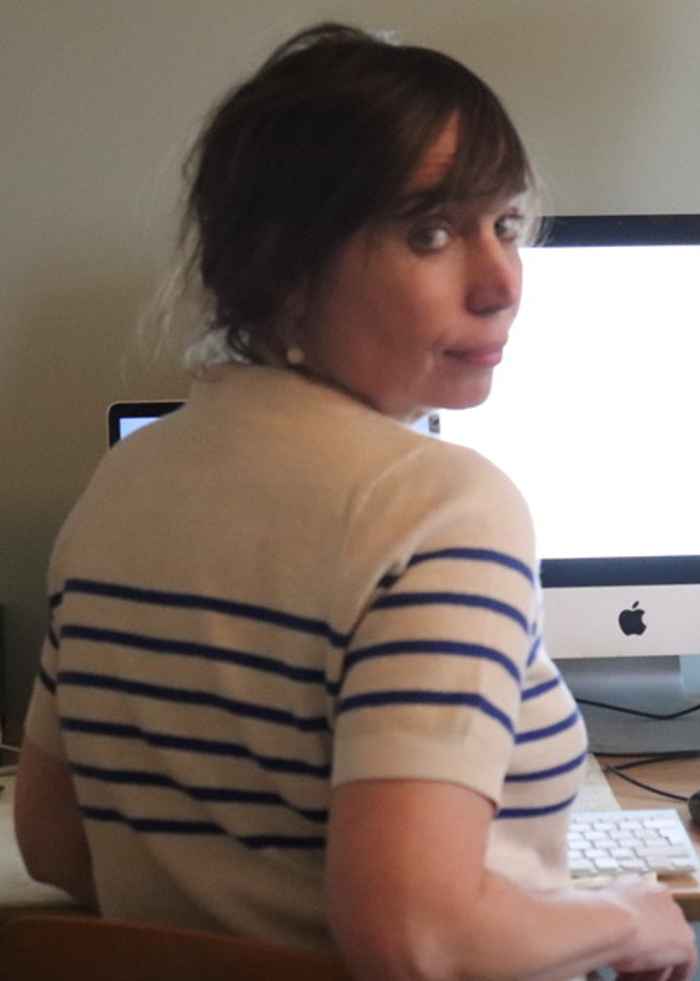A look behind the scenes of online education
Part 1: In conversation with teacher Selma de Groot
10 November 2020

'We miss the interaction'
Selma currently misses the normal interaction with students the most. 'I also hear that from my colleagues: we miss the conversations in the breaks, the discussions at the board and thesis discussions where you think about a certain problem together,' says Selma. 'We still communicate, but it's more static and less alive.'
There is something homely though about seeing all the students in their rooms and occasionally seeing a dog or roommate stroll through the screen. 'What's more, all the students are now sitting in the front row. And I like the fact that you can see everyone well.'
Working together for the best possible education
Switching from physical to online education is a process that took several months. Selma says: 'I had to change all teaching and testing formats'. That wasn't easy, because the measures surrounding corona were constantly changing, like the number of students who were allowed to come to the faculty, physical testing, digital testing, testing with or without Proctorio. 'The form of the examination depends on the technique in which we take it. So we had to change the set-up several times. Initially, we only wanted to take tests via intermediate tests and a written assignment, and some of this during the course of the course. But that turned out not to be logistically feasible. After that, we came up with a number of interim variants, for physical tests with a final exam and a few weeks later for a Proctorio exam.'
The new teaching and testing designs had to be discussed with the director of education, the educationalist, the board of examiners, colleagues from the logistics department and educational coordination. 'For example, the director of education checked whether the subject could be taken alongside another subject and whether the new format did justice to the content of the subject. And the board of examiners checked whether the new format fitted in with the OER.'
Online education is really different
The switch to online education is not just a matter of lecturing behind your computer: 'It's really different. You can tell less, you have to tell subjects differently, you have to visualise differently, and you don't always see if something is understood,' says Selma. In addition, teachers are now suddenly faced with a technical challenge as a result of digital education. 'We receive customised advice and training from the ICT department to ensure that the new form of education runs as smoothly as possible.'
Does digital education involve extra work compared to physical education? 'I think many colleagues are now working twice as hard, because there are more students and there is less easy direct communication. Moreover, due to the changed circumstances, we now receive a lot of e-mails from students about subjects we don't immediately know anything about, such as questions about the technique of digital testing'.
I feel that we rely more on each other to make online education successful
Dialogue between teachers and students
Unfortunately, not everything goes well all the time. How does it feel for Selma when she hears that students are unable to take an exam due to a technical malfunction? 'That's a small disaster. First and foremost for students, of course, but it's also a disaster for us lecturers. During the teaching weeks we work with students to prepare them for the exams as best we can.'
Selma adds: 'Maybe we should engage in dialogue and hear from students how they want to be taught. I feel that we rely more on each other to make online education successful, but at the same time the distance between the faculty and students has increased. It is more difficult to gauge sentiments and wishes. I don't think that students feel like they are in the same boat as the lecturers, that we need to work together for a while. That's a pity sometimes.'
To conclude, we ask Selma what she wants to say to students. 'I hope that they can continue to work well and achieve a lot of good study results. Then they will have room to let go of the reins a bit and to experience a study period where there is room again for parties, intermediate years, work placements and foreign studies!'